What does it mean to submit?
The Bible says, “Submit to one another out of reverence for Christ” (Eph. 5:21). Many readers skip this verse, focusing on Ephesians 5:22 but ripping it from its context: “Wives, submit yourselves to your own husbands as you do to the Lord.” That instruction is part of a longer passage that guides both husbands and wives in submitting to one another. (Read the entire passage here.)
In many African cultures (as in many American cultures), this passage is often misunderstood and misapplied. The power of patriarchy sometimes colors our interpretation.
This was certainly true in our recent teaching in Tororo, at Abundant Life Church. But thankfully, leaders there were open to learning–and it was life-changing. After leading a New Man, New Woman, New Life seminar there earlier this year (see our report here), we were invited back to do a Master Class.
A powerful demonstration of what mutual submission looks like (along with a deep dive into the text) brought initially skeptical participants into a fresh understanding of God’s Word. As a result, they want to share this message with others.
Empower Uganda President Joyce Ouko taught the Master Class in Tororo with Frank. At the same time, Joyce’s husband Julius, along with Apostle Charles Okumu, taught a NMNW class in nearby Malaba. A report on the NMNW class in Malaba will be posted next week.
Here is Frank’s report on the Master class.
Tororo District is in Eastern Uganda on the border with Kenya. Tororo Municipality and Malaba are about 10 KM apart. We traveled back and forth between the two towns as we did both the Master Class (MC) and the NMNW seminar at the same time, and sometimes we switched or reinforced facilitators.
Tororo is a home to Cement factories like Tororo Cement factory (which is one of the biggest in the country) as well as Osukuru Hills, which are known to have gold and Iron-ore deposits. These and many other generational factors contribute to Tororo being a cosmopolitan town and district. Many tribes from all over the Eastern Region claim possession of Tororo, but the real fight is between the Teso and the Badaama (JapAdholas- who share backward and forward cultural and language linkages with the Luo of Western Kenya).
In these fights, patriarchy is paramount. The winner will always oppress the loser—which most often results in more difficult circumstances for women. The government has come in several times to help these parties settle their differences amicably to no avail.
At the center of these cultural (and economic) fights in the greater Tororo region are practices that promote the subjugation of the woman. Whoever wins will often seek to control their enemies, sometimes forbidding women to marry a man from another tribe, and others using marriage to penetrate into other tribes to make them weaker and take advantage of them.
The New Man New Woman New Life Seminar was therefore a strong antidote to cultural and economic confusion of the greater Tororo area.
Our Empower Ugandan President and her husband, Joyce and Julius Ouko, led the Seminar for pastors around Tororo and some from Malaba.
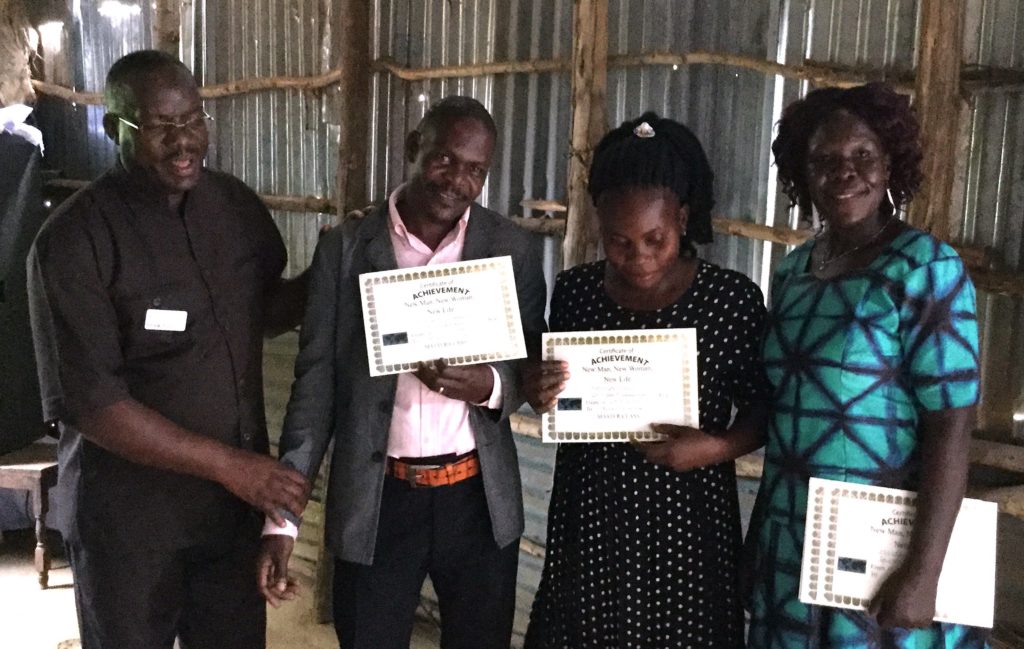 They were coordinated by one of our Master Class graduates from Arua (last year), Apostle Charles Okumu, who hails from Tororo but is a missionary to Arua.
They were coordinated by one of our Master Class graduates from Arua (last year), Apostle Charles Okumu, who hails from Tororo but is a missionary to Arua.
After the seminar, they requested the Master Class. Meanwhile, Bishop Wanjala Joseph organized the NMNWNL Seminar in Malaba at the same time. We are delighted to see local pastors organizing and inviting people to these seminars, and even getting involved in leading and facilitating.
Joyce and I did the Master Class training while Julius and Apostle Charles Okumu did the NMNWNL Seminar at Malaba. (In the Master Class, we go more deeply into the material in NMNWNL, so that graduates can then teach it to others.)
I appreciated the level of maturity of the pastors and leaders who came for the MC. They are so thoughtful and not easily excited. They are like the Berean Christians. They first want to prove things before they accept them.
As such they still had skepticism on some of the Genesis teachings especially on Ezer Kenegdo, They questioned the teaching about the Man being in the garden during the temptation of the human, and the curse story, as well as some of Paul’s teachings, especially submission and headship.
A greater part of the first day went into clearly and scripturally understanding the above before we launched into the MC material.
While the participants understood the framework for understanding gender in the Bible, especially the descriptive and the instructive verses and statements, it took some time for them to study and grasp the corrective verses.
When they finally did, they exploded with gratitude because they had never understood them in the context of those verses being corrective, i.e., written to a specific group in a specific situation in order to correct it, rather than being an instruction for all churches everywhere at every time. Now they have organized more NMNWNL seminars around Tororo, Busia Border and other places, because they want all who can get this message to get it.
They are committed to teach this material and extend it as much as they can.
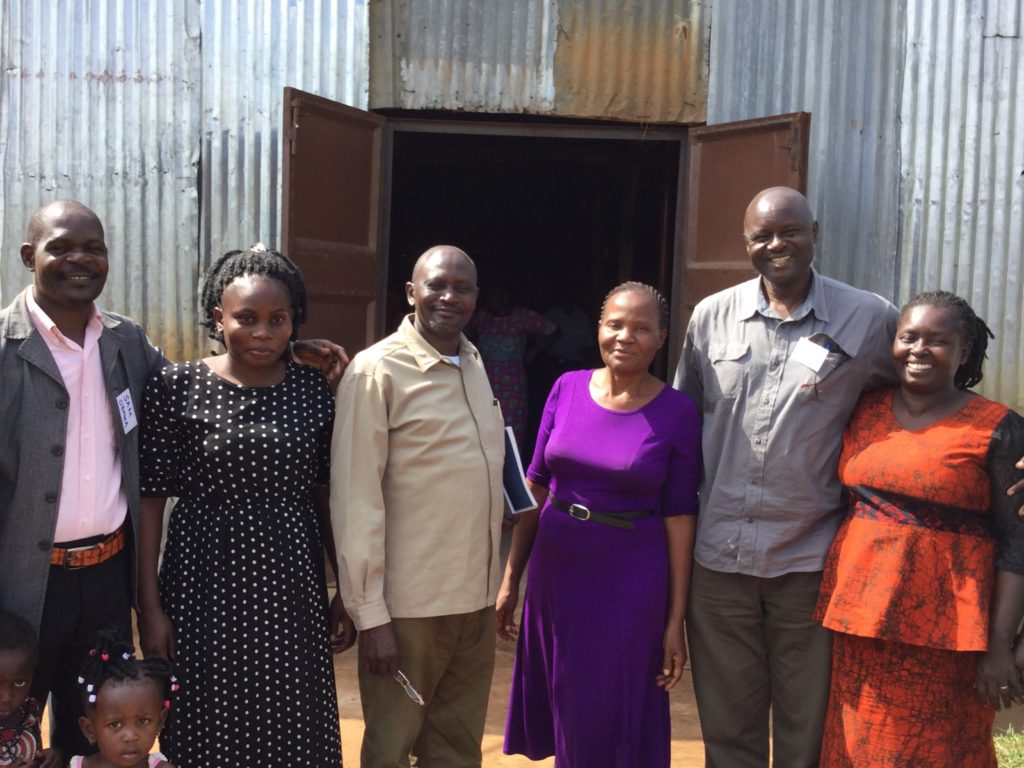
I think one way we helped this group to more deeply understand Paul’s teachings on men and women was a demonstration we presented.
We demonstrated submission in the active voice, passive voice and the middle voice. In the original text, Paul uses the word hypotasso in middle voice. This is often lost in English or other translations, but it is important for accurate interpretation.
We emphasized that to assume that “submit” in either active or the passive voice is not accurate, but is promoted by culture and the cultural understanding of the Bible.
To demonstrate, we had Bishop Onamna Steven and his wife stand before the group. The wife knelt, showing that she is voluntarily submitting to her husband not because she is forced by culture (active), nor because she passively does what is required of her, irrespective of the consequences, some of whom may result in bodily harm or lack of dignity (when every male in the family wants to sleep with her etc.). Rather, she chooses to submit in reverence for the Lord and because she wants to make her husband better.
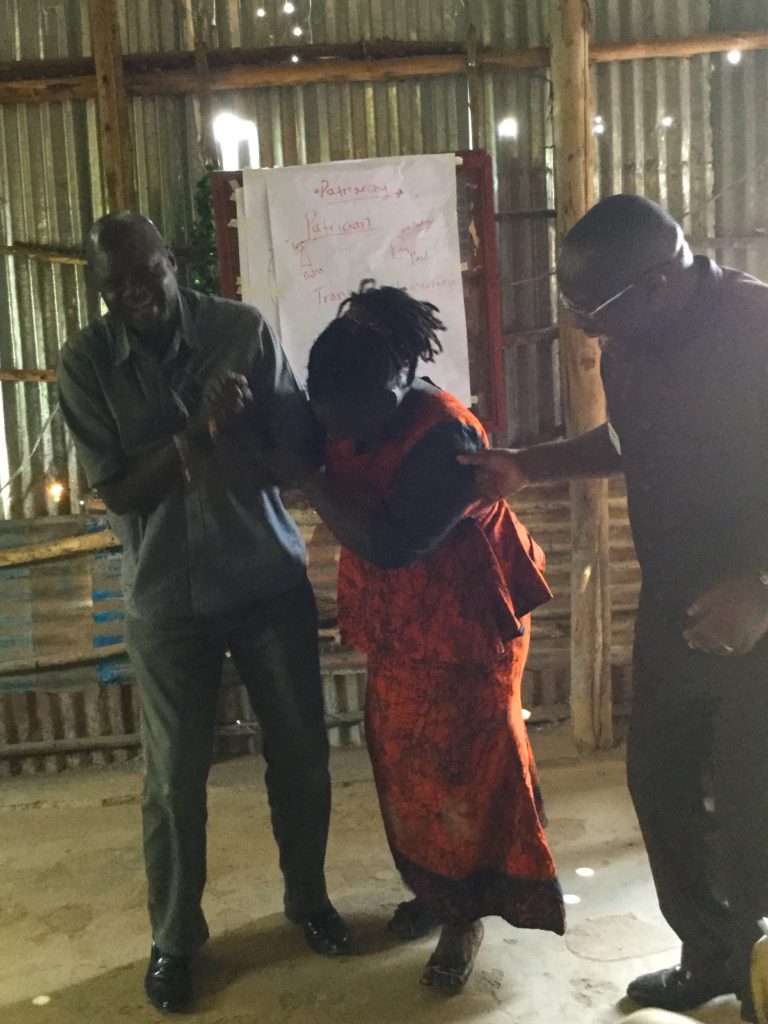
On the other hand, the husband is also doing the Lord’s command of agape (caring concern) and as long as he does it the way Jesus did it, he will leave his (culture-given) position of superiority, and comes down to where his wife is, they both find themselves ‘down’ (mutual submission) and they begin raising each other up and (like Jesus in Ephesians 2:6, where we sit with Him in Spiritual High places). As a result, the husband and wife also find themselves ‘up.’ Neither of them leaves the other ‘down.’ That is our position in Christ Jesus.
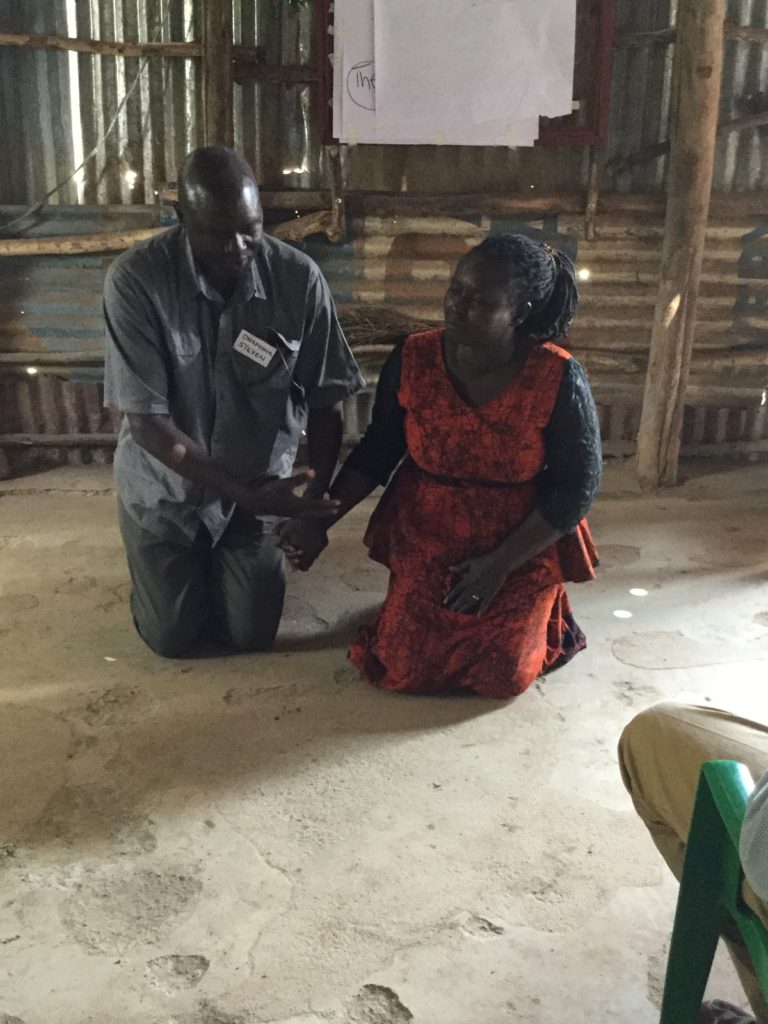
We are (redeemed) back to the garden, where we are again “face to face” with the wife being the “Ezer” of the husband (Ezer Kenegdo).
Therefore Ephesians 5 takes us back to the garden and it is a very beautiful picture we have in Chris Jesus.
(Many of the cultural practices that oppress women will be shared in the forthcoming Malaba report on the burdens of women in these various cultures that constitute the greater Tororo region.)
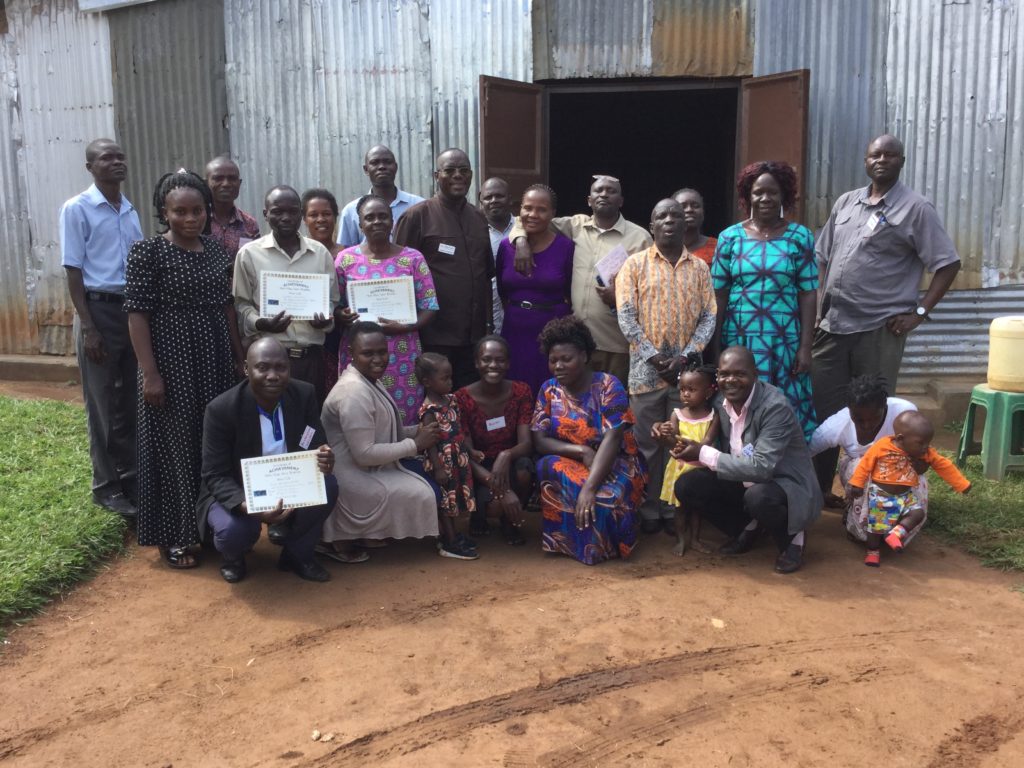 A huge thank you to all who support this work financially, prayerfully and otherwise. You are contributing immensely toward the cultural and community transformation of many as well as helping to redeem the woman out of the deep cultural pit that she has always been subjected to.
A huge thank you to all who support this work financially, prayerfully and otherwise. You are contributing immensely toward the cultural and community transformation of many as well as helping to redeem the woman out of the deep cultural pit that she has always been subjected to.
